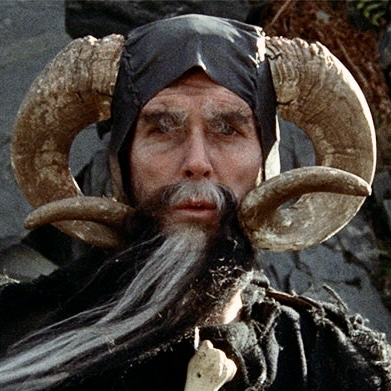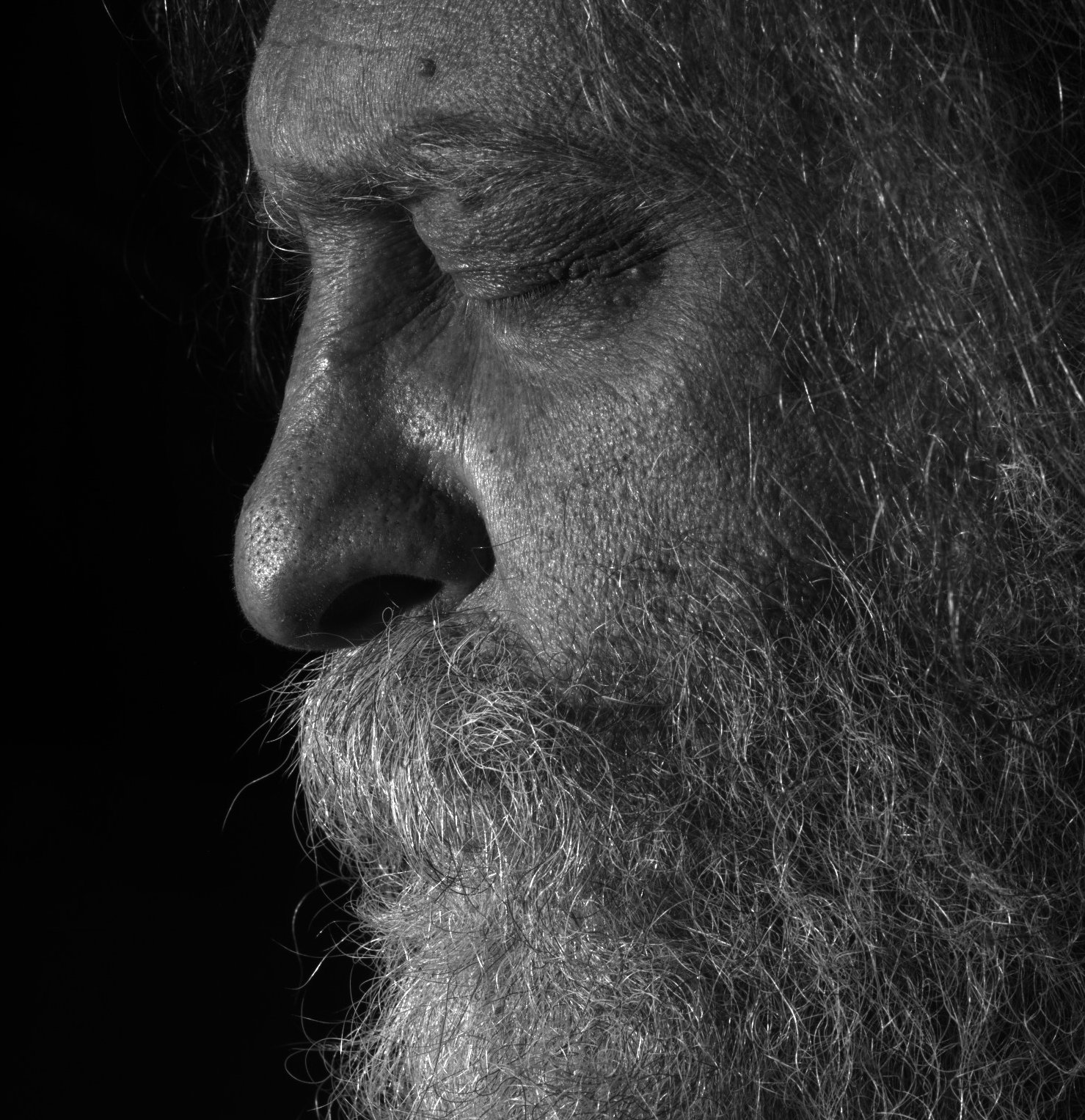Reading Antifragile by Nassim Taleb was eye-opening for me. I turn to the concepts of the book whenever I feel unsure about a decision or opinion.
Hitchhikers guide. 42 for the win always know where your towel is and don’t panic
The amount of times we answer 42 in our family… we just can’t help ourselves
How many roads must a man walk down?
Wait I know this one, is it … 42?
Bingo! You win Marvin!
I don’t see what he’s done to win me, nor why anyone would want to. I’ve got the worst pain in all the diodes down my left side…
Too late! You’re Raverbunny’s problem now! speeds off
Viking_Hippie’s just this guy, you know…
Walkaway by Cory Doctorow. I was interested in anarchism in my college years, but turned away from it because of what I perceived as the strongman problem. What happens when the psychopaths come for what you have?
Walkaway solved that. In a post scarcity society, you walk away. Let them have your shit. You can build new shit, better shit, avoiding the mistakes you made and making grander mistakes forever into the future.
This book brought me back into the fold. It was transformative, and in a really big way
You wouldn’t have post scarcity society in anarchism, though. And if that has been achieved before, it would be what they attack first.
There’s different flavors of anarchism just like there’s different flavors of anything. Saying they’d all “attack x first” is very far beyond what any person can reasonably predict. Particularly given how chaotic anarchy can be.
You should read the book. Might just change your mind
I really should, that is true. I’ll put it on the list. I’ve read most of Doctorow’s older books already.
Including Down and Out In The Magic Kingdom? 'Cause Walkaway is the prequel
In a post scarcity society, you walk away. Let them have your shit. You can build new shit, better shit
How do you do that if they take all your 3d printers (the technology which sustains the post-scarcity world in this novel)?
How could they possibly take all of anything in a POST-scarcity society?
Post-scarcity society still has to be backed by something. In the novel, it’s 3d printers. If you have more 3d printers than others, you can use it to produce weapons to capture even more 3d printers from other people, making them scarce, and thus introducing scarcity again.
Shigley’s Mechanical Engineering Design 10th edition
Sigh… kind of wish it wasn’t.
Why? Shigley’s is awesome. I still refer to my heavily tabbed copy at work on occasion.
I agree that its a fantastic resource. But the only times that book gets opened is when I’m about to make my brain hurt bigly and it makes me regret choosing mechanical eng just a liiiiiitle bit.
The Lord of the Rings trilogy, by Tolkien
I return to it ever couple of years, always in bad times and often in good times too. Everyone is trying to do the best they can, contributing what they can. Only few characters are at all malicious. Emotions are deep and powerful, portrayed lightly. The whole story is a great collaboration where wildly different people overcome their differences to reach a single, all-encompassing goal.
I have a version of The More Than Complete Hitchhikers Guide to the Galaxy that’s genuine leather bonded with gold leaf page edges and builtin bookmark. It’s on display on a special shelf. Everyone who visits thinks it’s a bible, and in a way it is as it does have a lot of good advice about life, the universe and everything.
Protect me from knowing what I don’t need to know. Protect me from even knowing that there are things to know that I don’t know. Protect me from knowing that I decided not to know about the things that I decided not to know about. Amen.
Lord, lord, lord. Protect me from the consequences of the above prayer. Amen.
The Jedi Code: A Manual for Students of the Force. I am lucky enough to have a copy which been passed from master to student, and many annotations have been added to enrich, update or contest the material in the book, which really widens the perspective. Sadly, a section near the front of the book has been ripped out, I’m guessing that one of my predecessors wanted to scan the section regarding the Prophecy of the Chosen One - probably to email a PDF of it to Master Windu!
The Joy of Cooking
Some of my favorites:
Thinking fast and slow, Daniel Kahneman
Truly a great book that has been influential in how I approach presenting material to other people and in making sense of the world. Daniel and his long standing research partner received the Nobel prize in economics with there work in behavioral psychology. The book teaches you how people think, make decisions, and process information.Antifragile, nassim taleb.
I won’t say much other than to make a counterpoint. As much as I enjoyed the book and his presentation and arguments around making systems antifragile, his witing can be summarized by a quote from Dr. Tetlock: “His witing is like a fine French meal, gently dusted with shit.” Taleb is a bit up his own ass at times, but antifragile is imo his best work.Superforcasting, Phillip Tetlock.
Great book on how to quantify the chance of future events. Famously feuding with nassim taleb, though really it’s more taleb feuding with anyone who has different ideas than him.Man’s search for meaning, Victor frankl.
One of the most interesting, heart wrenching and warming books. Whether you subscribe to his exact philosophies, frankl is a wonderful read.The better angels of our nature, Steven pinker.
Probably the most exhaustively assembled academic book I’ve ever read on the trends of progress.Origin story, David Christian.
An excellent history of everything with a focus on the repeating patterns of humanity trending towards more complex social interactions. Am easy and enjoyable read.I loved Thinking, Fast and Slow. I really enjoyed how he included a lot of the questions and tests he used so you could answer them as you read the book.
Oh, the Places You’ll Go! by Dr. Seuss
Man’s Search for Meaning by Dr. Victor Frankl. Saved me in so many ways.
The bible
I don’t think you deserve the downvotes and attacks. I believe they’re from people who think everyone who reads the bible is a right wing religious fanatic. Same as the people who think everyone who reads the Koran is a jihadist, which ironically tends to be…
I came here to say that. Sorry about the abuse you’re about to take. But we deserve it apparently. Sins of the fathers or “people like us” or something, I guess.
You literally only said “The Bible” and I already saw some frothing.
Have you bashed out any newborn babies’ brains on a rock today?
Chill.
The day has barely begun. Gotta go to the morning stoning first. Pushy people like you make us regular baby brain bashers look like weirdos.
Sorry. So at what point do we lust after our lovers, whose genitals are like those of donkeys and whose emission are like that of a horse?
I forgive you for posting that.
I forgive you for saying the bible.
We are not the same.
When I was in my 20s, definitely Principia Discordia.
Now… maybe Brecht’s Threepenny Opera?
Or Zamyatin’s We.
Radical Compassion by Tara Brach.
Have kept for decades now a guided metta meditation by her. :)
Her podcast is excellent.
deleted by creator
“Compassion is priceless in the truest sense of the word. It must be given freely. In abundance.”
Still my favourite quote from the series.
Probably the Gateless Gate, the Eiichi Shimomissé translation. I’m actually a Discordian, but I find the Principia best for introduction. It devotes a lot of space to silly rules you’re supposed to violate and other introductory concepts and practices. And Illuminatus! is plagued by a masculine confidence and aggression that both the writers and Hagbard were aware of and tried to minimize. The Gateless Gate is, to me, much better for staying deep in the untethered state of pure Discordian existence. It talks a little much of patriarchs, but it’s not thematically essential. And it isn’t rooted in and doesn’t reference modern western theology and philosophy like the Principia because it was never intended to stand in contrast to or lead people out of modern western theology. Both the Principia and Illuminatus! reference it in some way because secular zen is important to the development of Discordianism. Maybe no book has ever changed my life as much as Illuminatus! but the Mumonkan is one of my primary tools for staying rooted in this way of being. It’s with me all the time. One of the first things I do when I get a new phone is make sure my Mumonkan made it over or go download it again. I read it whenever I’m feeling lost or confused and uncertain about a decision or life change. It always leads me back to me.
Mumonkan!










